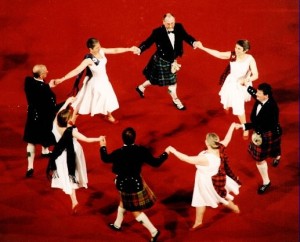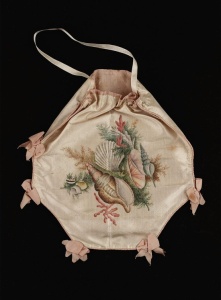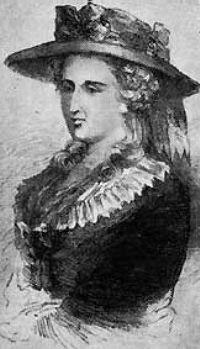In the singular form the lexicon of a particular subject is all the terms associated with it. The lexicon of a person or group is all the words they commonly use. As a plural noun, a lexicon is an alphabetical list of the words in a language or the words associated with a particular subject. To distinguish lexicon from a dictionary, it is an alphabetical list of the words in a language or the words associated with a particular subject.
These examples are a mix of what one might hear upon the lips of the aristocracy, as well as examples of Cant used upon London’s streets and those terms used by farmers and like in the country.

R. A. – member of the Royal Academy, which was founded by George III
race courses – There were five famous racecourses for horses during this time: (1) Newmarket in Surrey; (2) Goodwood in West Sussex; (3) Epsom Downs, also in Surrey; (4) Royal Ascot in Berkshire; and (5) Doncaster in South Yorkshire
Radcliffe, Ann – was an English author, and a pioneer of the Gothic novel. Her style is romantic in its vivid descriptions of landscapes, and long travel scenes, yet the Gothic element is obvious through her use of the supernatural. It was her technique of explained Gothicism, the final revelation of inexplicable phenomena, that helped the Gothic novel achieve respectability in the 1790s.
radical – extreme liberals who demanded governmental reforms leading to the Reform Act of 1832
rag-and-bone shop – a shop that bought and sold rags that could be made into paper, as well as bones the could be ground up into manure
ragbag – servants had the privilege to place discarded rags from their master’s household in a ragbag to be sold later for a profit
rake – A dissolute man who indulges in excessive drinking, gambling, and debauchery. In romance novels, most often rake is incorrectly used interchangeably with “libertine” or “roué” however, the latter two terms mean a womanizer, not necessarily one who is also excessive with gambling and drinking – so Mr. George Wickham would be a libertine or roué, not a rake.
Ramsgate – Ramsgate was/is a seaside town in the neighborhood of Thanet in England. It is on the southern coast of the island. In Jane Austen’s time it was a place of high standards.
rank – a person’s social standing
ranker – an officer who had advanced to his position from the ordinary soldiers instead of purchasing his commission; gentlemen rankers were the opposite situation as they were gentlemen who sought anonymity among the ranks of the ordinary soldiers, likely due to some disgrace or scandal from which they wished to escape
rasher – a thin slice of ham or bacon
ratafia – a macerated fruit punch liqueur, flavored with almond extract.; often a touch of brandy is added
rate – the rate of a ship-of-war was based on the number of guns; first-rates carried 100+ guns; second-rates carried between 75-100, etc., down to sixth-rates
rate – a local parish tax
read himself in – the incumbent reads the Thirty-nine Articles aloud to his congregation upon assuming his new office
recusant – a person who refused to attend Church of England services (originally used only for Catholics and Dissenters)
Red Book – a list of everyone who worked for the government
reddle – a red chalk used for marking the sheep’s owners before they are sheared
reddingote – a long, fitted coat generally worn for colder temperatures; could have a belt and be trimmed with fur

com/folklore_dancing.html
reel – a Scottish dance that involved a series of figure 8s
Reform Act of 1832 – brought about to eliminate the underrepresentation of the lower classes (especially the middle class) by redistributing the parliamentary seats among the boroughs
regent – a person who reigned on behalf of a monarch (George IV became the Prince Regent when his father was declared insane in 1810)
Regency – the years 1811-1820 when Prince George IV ruled as Regent during his father, King George III’s, mental illness
register – a record of the births, deaths, and residents of a parish
regular – the enlisted army of the British government as opposed to the irregulars (militia and volunteers)
repeater – an old-fashioned watch that struck the last hour or quarter hour when a person pushed the handle on it; very useful in the dark in providing the time; A repeater is a complication in a mechanical watch or clock that audibly chimes the hours and often minutes at the press of a button. There are many types of repeater, from the simple repeater which merely strikes the number of hours, to the minute repeater which chimes the time down to the minute, using separate tones for hours, quarter hours, and minutes. They originated before widespread artificial illumination, to allow the time to be determined in the dark, and were also used by the visually impaired. Now they are mostly valued as expensive novelties by watch and clock enthusiasts.
resurrectionist – a body snatcher (Before 1833, only the bodies of criminals could be used in medical schools for the teaching of anatomy.)
retainer – a servant who had been with a family for extended years

camp.wordpress.com/
2013/06/16/summer-getaway-workshop-regency-reticule-wallet-making/
Reticule – (sometimes called a “ridicule”) a Regency purse in which ladies carried their essential calling cards, handkerchief, comb, etc.; held about the wrist with a long drawstring closure
Right Honourable – the formal way to address earls, viscounts, barons, and privy councillors; also used for a peer’s eldest son bearing as a “courtesy title”
ring a peal over someone’s head – to scold
Riot Act – (originally the Riot Act of 1714) a justice of the peace would, literally, read a troublesome crowd “the riot act,” meaning he would read his instructions to disperse to the group; after an hour, if more than 12 remained those arrested would be guilty of a felony
river tick – to have no money; to be deeply in dept. Credit was drawn on a ticket—hence the shortened word ‘tick.’
Robin Redbreast – the colloquial name for the Bow Street Runners because of their vests
roly-poly – a very old word based on two origins: 1. Biscuit dough spread with jam. 2. rowle powle, a worthless fellow. This term originates from a 16th century rolling ball game
rotten borough – a parliamentary borough with few inhabitants; part of the Reform Act of 1832 was to eliminate such boroughs
Rotten Row – a walkway for horses in the southern part of Hyde Park; the word comes from a corruption of the phrase route de roi meaning “King’s Row” in French
round gown – A dress with the bodice and skirt joined in a single garment (during the Regency and earlier, these pieces were generally separate), with the skirt closed all around, ie not opened to expose an underskirt.
roué – a man who is lascivious or unrestrained sexually, an immoral womanizer
rout – a crowded party with no music or dancing or places to sit; yet, people attended in order to be to see and to be seen

2010/02/14/austenonly-northanger-abbey-season-the-crescent-bath/
Royal Crescent (Bath) – The Royal Crescent, one of Bath’s most iconic landmarks, was built between 1767 and 1775 and designed by John Wood the Younger. This impressive landmark forms a sweeping crescent of 30 Grade I Listed terrace houses, and is without doubt one of the greatest examples of Georgian architecture anywhere in the UK.
Royal Exchange – where the various trades met in London; each trade met with others of a like trade and were allotted a particular area in the Royal Exchange; Lloyd’s of London was also house in the Exchange
Royal Naval College – The Royal Naval Academy (1733 – 1837) was established at Portsmouth Dockyard as a facility to train officers for the Royal Navy. The founders’ intentions were to provide an alternative means to recruit officers and to provide standardised training, education and admission. The officers learned not only military strategies, but were taught social skills such as dancing.
In 1733, a shore side facility was established in the dockyard for 40 recruits. A comprehensive syllabus provided theoretical and practical experience in the dockyard and at sea. Graduates of the Academy could earn two years of sea time as part of their studies, and would be able to take the lieutenant’s examination after four years at sea instead of six. The Academy did not, however, achieve the objective of becoming the preferred path to becoming a naval officers. The traditional means of a sea-going ‘apprenticeship’ remained the preferred alternative. The vast majority of the officer class was still recruited in this manner based on family ties, and patronage. Family connections, ‘interest’ and a sincere belief in the superiority of practical experience learned on the quarterdeck ensured that the officer class favoured the traditional model. William IV summed up this view when he remarked that “there was no place superior to the quarterdeck of a British man of war for the education of a gentleman.”
There was a clear prejudice against Academy graduates. The then rating of midshipman-by-order, or midshipman ordinary, was used specifically for graduates of the Royal Naval Academy, to distinguish them from midshipmen who had served aboard ship, who were paid more. After two years at sea, graduates of the academy were eligible to be promoted to midshipman.
The college closed as a young officer training establishment in 1837 meaning that from that date all youngsters setting out on a naval career proceeded directly to sea. Two of Jane Austen’s brothers, Francis and Charles, attended the Academy in 1786 and 1791 respectively. Both went on to become Admirals.
Royal Navy – The Royal Navy (RN) is the principal naval warfare service branch of the British Armed Forces. Tracing its origins to the 16th century, it is the oldest service branch and is known as the Senior Service. From the end of the 17th century until well into the 20th century it was the most powerful navy in the world.
rubber – required gamers to win two out of three or three out of five hands of whist, etc.
rushlight – ordinary rushes, which have been dipped in drippings of oil or grease, so they can be easily set alight; used in place of candles by the poor
If Interested, Check Out These Other Resources:
Other Sources:





Reblogged this on Amy Quinton and commented:
To my fellow lovers of all things regency…
Thanks for reblogging the post, Amy.
I didn’t know that the rag-and-bone shop was literally bones! Yikes!! I am researching an article in that era and saw a reference to the “dog meat” peddler. I love writing about the Regency, but my gosh, I would never want to live there!
I agree, Mimi. Too much violence and filth for me.